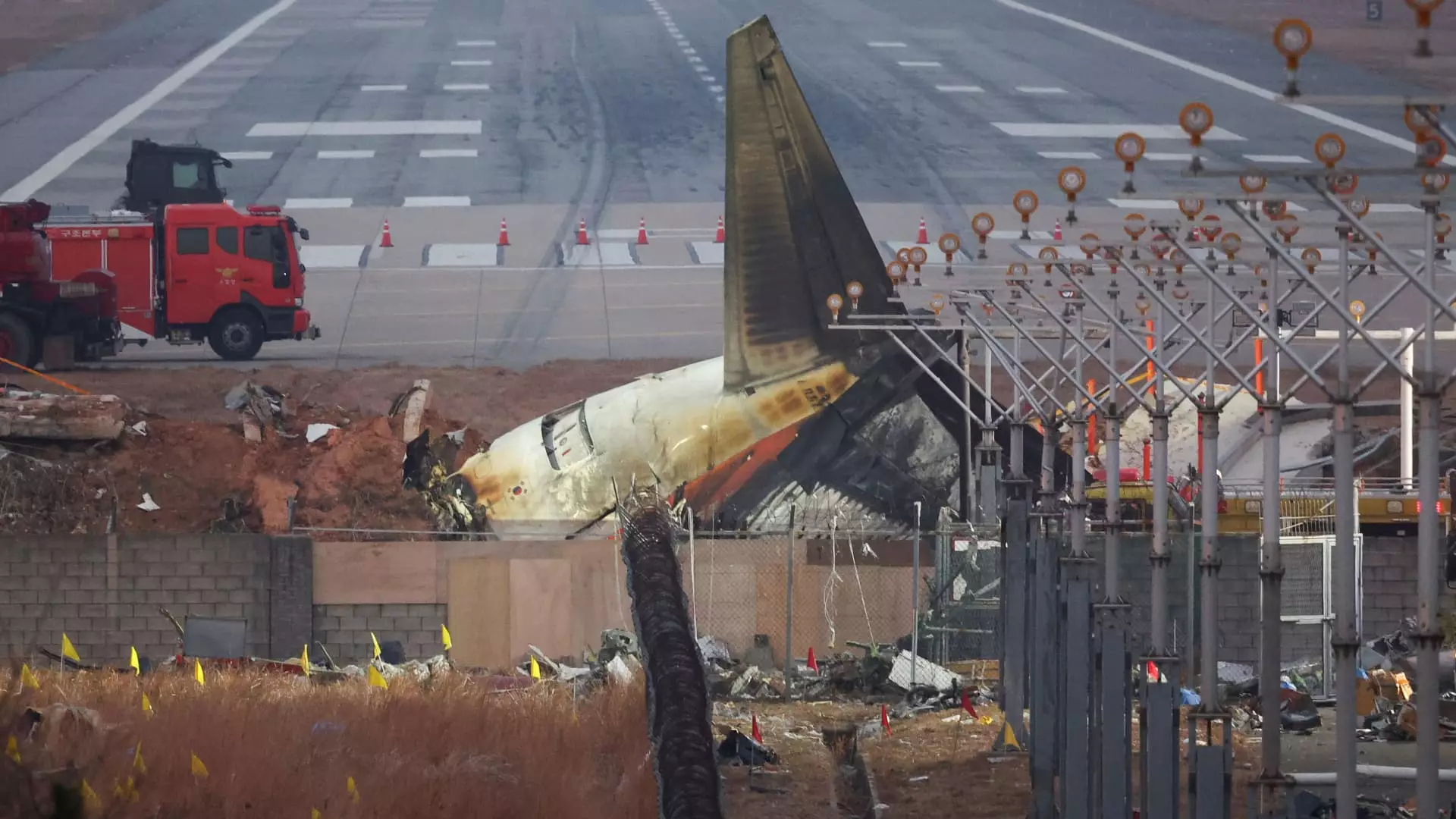The aviation world was rocked this past weekend by the devastating crash of a Jeju Air flight, which left 179 of the 181 souls on board tragically deceased. The Boeing 737-800, a model renowned for its reliability and longevity in service, came down at Muan International Airport under catastrophic circumstances. In response to the disaster, South Korea’s authorities initiated an immediate inspection of all aircraft of this model operated by domestic airlines. Boeing’s stock took a hit as the news spread, reflecting investor concern linked to potential wider implications for the company’s reputation and financial stability.
Acting President Choi Sang-mok’s directive to the Ministry of Land, Infrastructure, and Transport (MOLIT) to undertake a comprehensive safety review indicates the severity with which the region is treating this incident. Notably, the airline’s management confirmed that a mechanical failure was not suspected; however, the ongoing investigation will seek to uncover any operational or regulatory oversights. The two surviving crew members’ accounts along with flight data will play a crucial role in deducing what went wrong during the flight.
The flight reportedly faced severe difficulties moments before landing, with the pilot broadcasting a “Mayday” alert while attempting a go-around. Unraveling the details of the incident reveals layers of complicating factors. Shortly after a warning about bird activity was issued by the control tower, the aircraft encountered what the pilot described as a “bird strike.” Although the 737-800 has a robust safety record, the potential involvement of bird strikes in contributing to the crash cannot be understated and warrants further scrutiny as investigators delve into the data retrieved from the black boxes.
Additionally, the examination of the concrete wall the aircraft collided with adds another dimension to the investigation. The wall’s role in the crash outcome could provide valuable insights. Aviation analysts have pointed to the fact that this particular model has been operational for nearly three decades, and while it has seen some criticism, any intrinsic design flaw appears unlikely to be a significant factor in this case.
Boeing, with its vast operational framework and reputation on the line, has found itself in the spotlight once again. The company is cooperating with South Korean investigators, along with the U.S. National Transportation Safety Board, and faces intense pressure to reassure the public of the safety and dependability of its aircraft. As noted by an industry expert, over 200 airlines adopted the 737-800 in the past year alone, showcasing its enduring appeal. However, shareholder confidence has been shaken, with Boeing shares reflecting the market’s apprehension post-incident.
The matter of operational compliance is set to be a focal point for MOLIT as they investigate maintenance records and inspections. Jeju Air, a prominent low-cost carrier in South Korea, emphasized its commitment to safety. Its management has publicly committed to thorough investigations, underscoring that no compromises exist in their aircraft maintenance protocols. Investors, however, reacted sharply, with Jeju Air shares hitting record lows, sending ripples of concern through the market.
As this investigation unfolds, it raises vital discussions about the overall safety protocols within airlines, particularly for low-cost carriers. There is a growing consensus that the industry must evaluate and possibly strengthen regulations regarding bird strikes and operational measures that could prevent such tragic outcomes. Experts are advocating for a more meticulous approach to aircraft operations and emergency protocols following bird activity advisories, particularly in regions where such occurrences are frequent.
The tragedy underscores the sometimes fickle nature of air travel safety, prompting airlines and regulatory bodies alike to recommit to rigorous safety standards. The outcome of the current investigation may not only result in heightened scrutiny of the Boeing 737-800 but could also ignite wider reforms in operational practices across the aviation sector.
As South Korean officials continue to delve into the circumstances surrounding this heart-wrenching incident, the aviation community watches closely, hoping for lessons that can prevent future tragedies while honoring the lives lost in this horrific crash.

